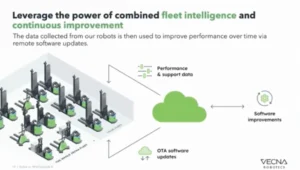7 Higher-Ed IT Trends to Track in 2021
Higher education, like many other industries, has undoubtedly been hit heavily by the pandemic. Classes have shifted to online and hybrid environments, budgets are squeezed more than ever, and higher-ed IT and technology needs continue to evolve.
Institutions are taking a hard look at IT infrastructure to ensure they are set up to provide the quality experience students expect.
As institutions grapple with the best path forward, these seven higher-ed IT trends should remain top of mind.
Enrollment rollercoaster
Even before the pandemic, colleges and universities of all sizes were grappling with a host of enrollment challenges. These challenges are compounding as both current and prospective students are deciding whether, when, and where to attend classes. Enrollment is projected to be down for upcoming school years–but institutions must focus on how to navigate the fluctuation in enrollment for semesters to come.
As enrollment periods and unanticipated remote learning requirements continue to evolve, institutions need technology that can evolve with them. As-a-service solutions enable institutions to scale up and down as necessary so institutions only consume the services they need at a given time.
A surge in demand for online adoption
Online learning was rising in popularity before the onset of the pandemic–but online offerings were concentrated among a small group of institutions. The vast majority of institutions had no online programs at all. When the pandemic hit and learning environments were upended, institutions rapidly evolved. While the rollout of online offerings was not always perfect, the switch to remote learning delivered a rapid education in the technology and design needed for successful online learning for both students and faculty.
Institutions must consider how the pandemic has permanently shifted learning environments – and if the lines between in-person and online education are forever blurred.
Widespread financial instability
With lower enrollment, increased competition, debt, and growing compliance costs, many institutions are struggling with financial instability and are at risk of closure. COVID-19 is expanding this instability and stimulus funding is only a drop in the bucket of what institutions need to cover costs.
Institutions must reallocate available funding to focus on compliance, making long-term changes to sustain and improve mission-critical services to students and other stakeholders.
A frictionless and engaging student experience
Institutions have long relied on campus amenities to attract and retain students. As learning has shifted online and students become increasingly technology-forward, intuitions must find ways to attract, engage, and retain students digitally.
Institutions must identify which digital tools and approaches work well–and implement them quickly. To do this successfully, they need a strategy aimed at achieving a seamless student experience.
Higher-ed IT as a critical mission partner
With the rapid and widespread shift to virtual class settings, IT solidified its place as a core collaborator in delivering on the mission to provide an exceptional student experience. At the onset of the pandemic, higher-ed IT played a critical role in ensuring that classes continued virtually and staff was able to work remotely.
Institutions are preparing for future virtual semesters–and education technology can help strengthen academic delivery. With the demise of traditional enrollment assumptions, IT has an opportunity to support digital marketing, customer relationship management (CRM), and analytics. Institutions must focus on effectively deploying IT in order to deliver an academic experience that is measurable through data.
Migration to an elastic workforce
When institutions across the country shifted to online learning, faculty and staff were seeking ways to engage students remotely. Institutions quickly learned that successful remote courses required more than implementing the right technology. Instead, they needed to transition to a new kind of workforce model – one that can fluctuate with the changing needs of faculty, staff, and students alike.
Institutions must seek elastic solutions that enable them to scale up and down to accommodate fluctuations in demand. As-a-service solutions help meet this need–allowing institutions to only purchase and utilize what they need at a given time.
Radical business model transformation
Institutions are facing downward pressure on tuition and rising operating costs. As a result, higher education business models are being reconsidered–and COVID-19 is making those considerations louder and more urgent. Institutions are considering integrated education models that incorporate undergraduate education into high-level research. This will increase demand for institutional/financial growth through sponsored research, driving development and adoption of the new financial and business models. Critical to this principle is reducing operating costs while increasing efficiencies/performance and subsequent reallocation of op-ex into research and academic operations.
Institutions must consider what business models are scalable, cost-effective, and accessible enough to meet the needs of this decade and beyond. Institutions – both large and small – are seeking innovation and solutions that solve this challenge are needed.
Higher education continues to evolve. Remote and hybrid learning scenarios will be around for the foreseeable future – and institutions must prioritize providing the high-quality experience that students expect. Delivering higher-ed IT solutions with flexible and efficient variables allows institutions to continue to thrive with smart data service solutions, while protecting and propelling institutions forward. The next year will be an integral year for technology in higher education, and institutions must invest in the right solutions to take them to the next level.
Follow us on social media for the latest updates in B2B!
Twitter – @MarketScale
Facebook – facebook.com/marketscale
LinkedIn – linkedin.com/company/marketscale








